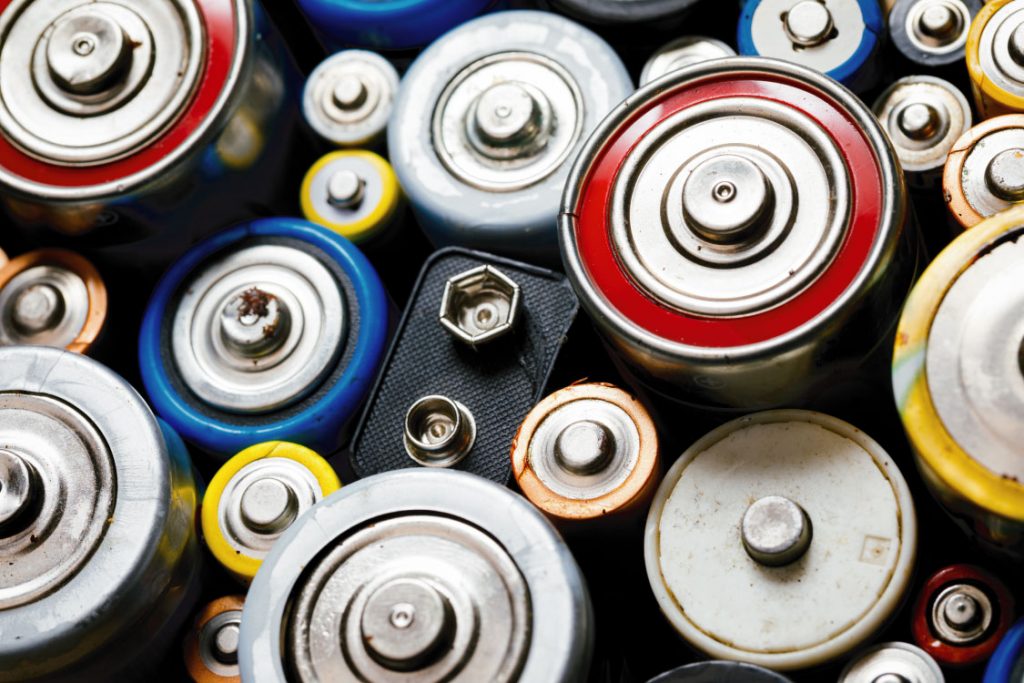A Guide to Battery Recycling
There are a lot of batteries in our lives these days, probably more than you might at first think. Take a few minutes to work out just how many you have in your own home.
First off, every laptop, tablet or mobile phone you or your family own has a battery, so in the average home that’s going to be quite a few for starters. Every remote control will also have a battery. If you’ve got kids then you’ve probably got any number of battery-powered toys lying around. Then you can count in your electric toothbrushes, battery shavers, e-cigarettes, wall clocks, alarm clocks and smoke alarms. And if you’re going down the cordless route, you may have batteries in your vacuum cleaner, your tool box (drill, screwdriver), table and bedside lamps. And moving outside, you’ll have the biggest battery of all in your car.
That’s a lot of batteries. What’s going to happen to them when they’re no longer of any use?

Don’t Throw Batteries Away
Please don’t just throw them away. All batteries should be treated as hazardous waste and none should go into general waste. They all contain harmful chemicals which, as the battery degrades over time, could seep out and contaminate the environment.
In 2018, approximately 40,000 tonnes of portable batteries were sold in the UK. In the same year, only 18,000 tonnes were recycled. That suggests that over 20,000 tonnes of batteries are being carelessly thrown away every year. Safe battery disposal isn’t so difficult that that should be necessary.
Recycling Loose Batteries
The simplest way of recycling batteries is to take your AAs, AAAs and other loose batteries down to your local supermarket and drop them in the handy containers usually found in the entrance. And if you do need to use these kinds of batteries, at least use rechargeable ones, so that you’re not buying more and more each time they run out. These days, rechargeables can have hundreds of charges so that translates into hundreds of new batteries you don’t need to buy.
Recycling Built-in Batteries
The batteries built into electronic devices can be more of a problem – but not so much of a problem that you should just give up and drop them into your general waste. If you can’t get them out of your device safely, they should be disposed of via WEEE Recycle (Waste Electrical and Electronic Equipment) service; these are easily available at your local recycling centre or through waste specialists such as CSH Environmental.
Incidentally, all your electrical equipment can be recycled, not just those with batteries – basically, if it has a plug or a charger, or uses batteries, it can be recycled.
Recycling Car Batteries
Car batteries have the potential to be the biggest environmental problem of all if they’re not disposed of or even recycled properly. According to a 2016 report, “the backyard recycling of lead-acid car batteries is the number one source of chemical pollution in the world’s poorer nations and leads to millions of years of healthy life being lost”.
In the UK, it is illegal to dispose of car batteries with household waste. If you’re having a new battery fitted into your car, your supplier will usually dispose of the old one for you. Otherwise, they should be disposed of at a household recycling centre (there will always be a special area for them to go), a scrap metal facility or waste specialists such as CSH Environmental.
Car battery recycling is just one of the many things we are doing to reduce the amount of waste, particularly hazardous waste, ending up in landfill. Our aim is that every bit of waste we collect is recycled and that nothing goes to landfill. To find out more about all our waste collection and recycling services, simply contact us today.
back to latest news